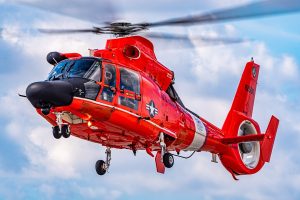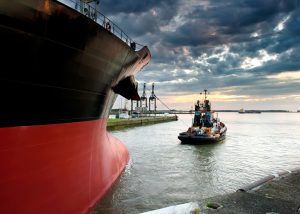Coast Guard Medevacs ill Crewmember from F/V Pacific Dragon II
 The U.S. Coast Guard’s Sector Honolulu command center received a medevac request at 4:57 p.m. on Monday, October 21, 2024, after notification that a 35-year-old crew member was experiencing severe abdominal pain. The F/V PACIFIC DRAGON II, was located approximately 78 miles northeast of Kahului, Maui at the time of the call.
The U.S. Coast Guard’s Sector Honolulu command center received a medevac request at 4:57 p.m. on Monday, October 21, 2024, after notification that a 35-year-old crew member was experiencing severe abdominal pain. The F/V PACIFIC DRAGON II, was located approximately 78 miles northeast of Kahului, Maui at the time of the call.
An MH-65 Dolphin helicopter crew from U.S. Coast Guard Air Station Barbers Point was dispatched to locate the vessel and evacuate the distressed fisherman. The helicopter reached the scene at approximately 4:00 a.m. on Tuesday, October 22nd, 2024, and transported the crewmember to Maui Memorial Medical Center in Wailuku.
“Watchstanders consulted with the duty flight surgeon, who recommended a medevac,” said a released statement, underscoring the urgency of the medical situation.
 Maritime Injury Law Blog
Maritime Injury Law Blog





